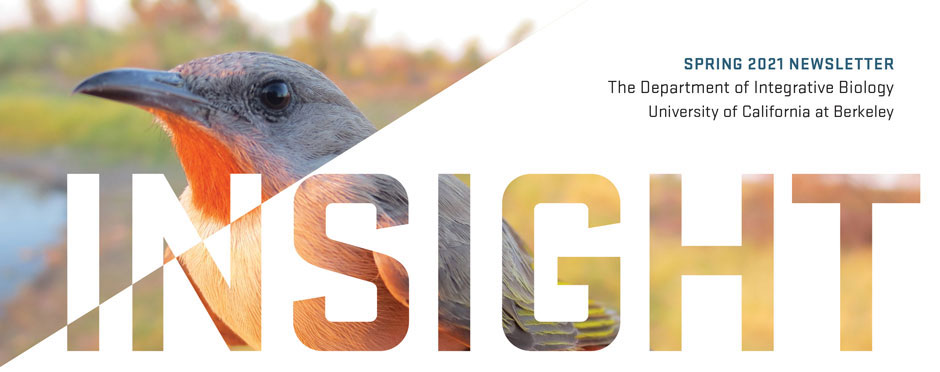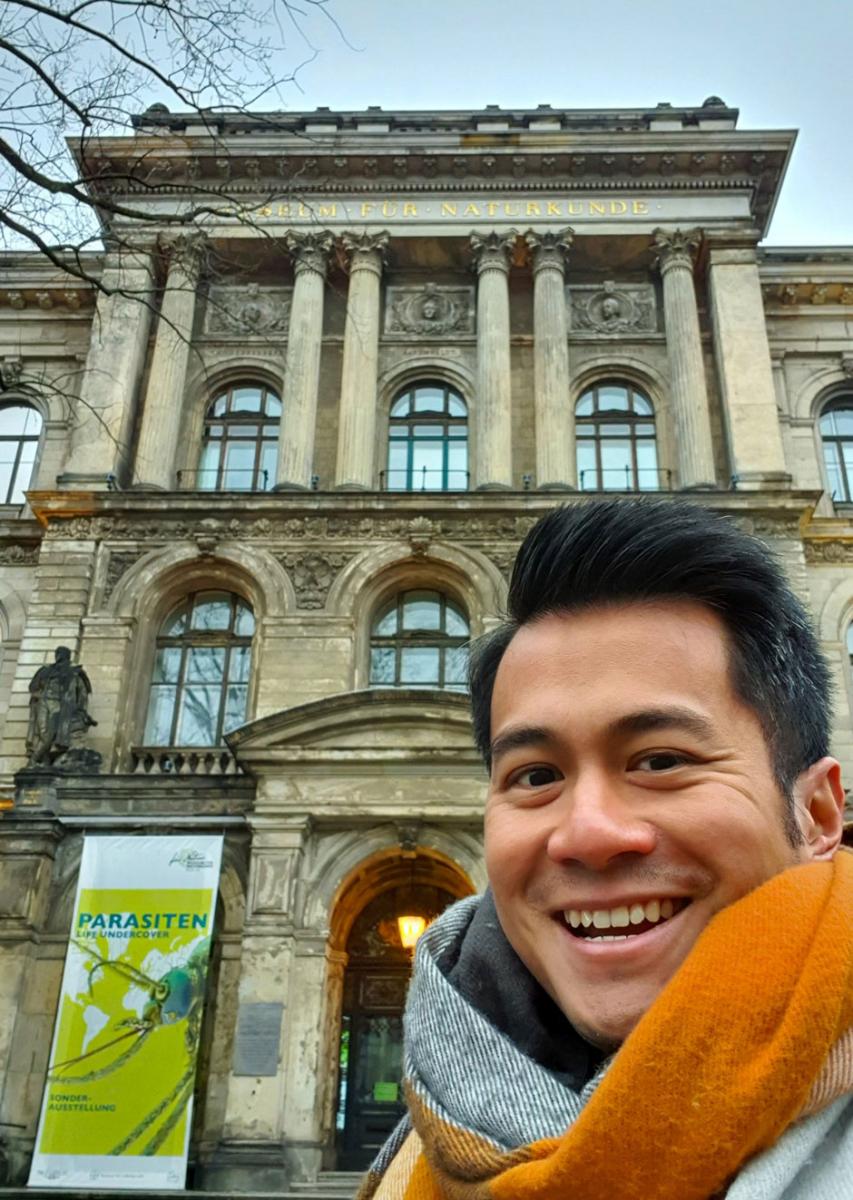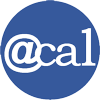Alumni Profile: Joshua Peñalba
Think Broadly and Be Flexible
By Kirsten Mickelwait
|
|
Joshua Peñalba (BA 2013) describes his experience at IB as “somewhat atypical,” which is something of an understatement. As an immigrant who came to the U.S. with his family as a small child and overstayed his visa, he was considered a “dreamer” under the Deferred Action for Childhood Arrivals (DACA) program. His immigration status, along with financial difficulties, forced him to take a two-year break from his Cal studies midway through his undergraduate career.
He used that time to continue volunteering in several roles in the Museum of Vertebrate Zoology (MVZ) and as a lab technician in Rauri Bowie’s lab; as an independent contractor, he collected genetic and genomic data for researchers. That hands-on practicum shaped his career goals and eventually led him to his new position as a research scientist for the Center for Integrative Biodiversity Discovery at the Museum für Naturkunde in Berlin, Germany.
Looking back, Peñalba realizes what a unique opportunity that academic break presented—and what a special community IB is. Not only was he mentored, supported, and allowed to pursue his interests, but his colleagues also conducted a fundraiser for him, enabling him to pay off his school debt. He credits Monica Albe, now a graduate student services adviser, for introducing him to the MVZ; former MVZ director Craig Moritz, faculty adviser Rauri Bowie, and staff curator Carla Cicero were also particularly influential.
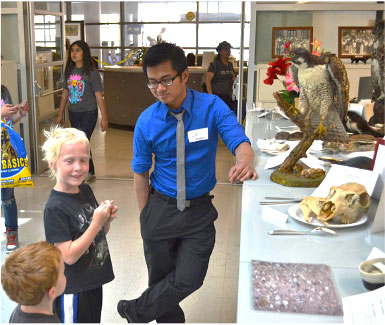 Peñalba as an undergrad in the Museum of Vertebrate Zoology on Cal Day. |
From a young age in the Philippines, he’d always been fascinated by nature and biodiversity. “I thought it was a fantastic adventure,” he says. “But I didn’t really know what that meant, and there are so many different paths in this field.” After Berkeley, he pursued his PhD (2017) at the Australian National University’s Research School of Biology while he was also affiliated with another museum, the Australian National Wildlife Collection in Canberra, Australia. Then came three years in a more academic setting with a postdoc position in the Division of Evolutionary Biology at Ludwig-Maximillians-Universität München in Munich, Germany.
Peñalba is now back in a natural history museum as an evolutionary biologist with a position in “museomics”: the study of genomics using DNA from historical museum specimens. “I’m tasked to optimize the best protocols to extract genetic materials from museum collections,” he says. “We’re extracting DNA from old museum skins, bones, mollusk shells, insect exoskeletons and specimens preserved in jars. Since these were not preserved with genomics in mind, the DNA is often highly degraded and difficult to extract.”
In his own research, Peñalba is interested in understanding how different evolutionary processes and contexts influence genome divergence during speciation. He uses modern samples—often with DNA from frozen tissues rather than historical specimens—to infer the evolutionary history underlying how species form, where biodiversity comes from, and how it gets generated. “Using birds as my system, I’m looking at early stages, where populations are very similar groups, to the point where they’re differentiated and become full species,” he says.
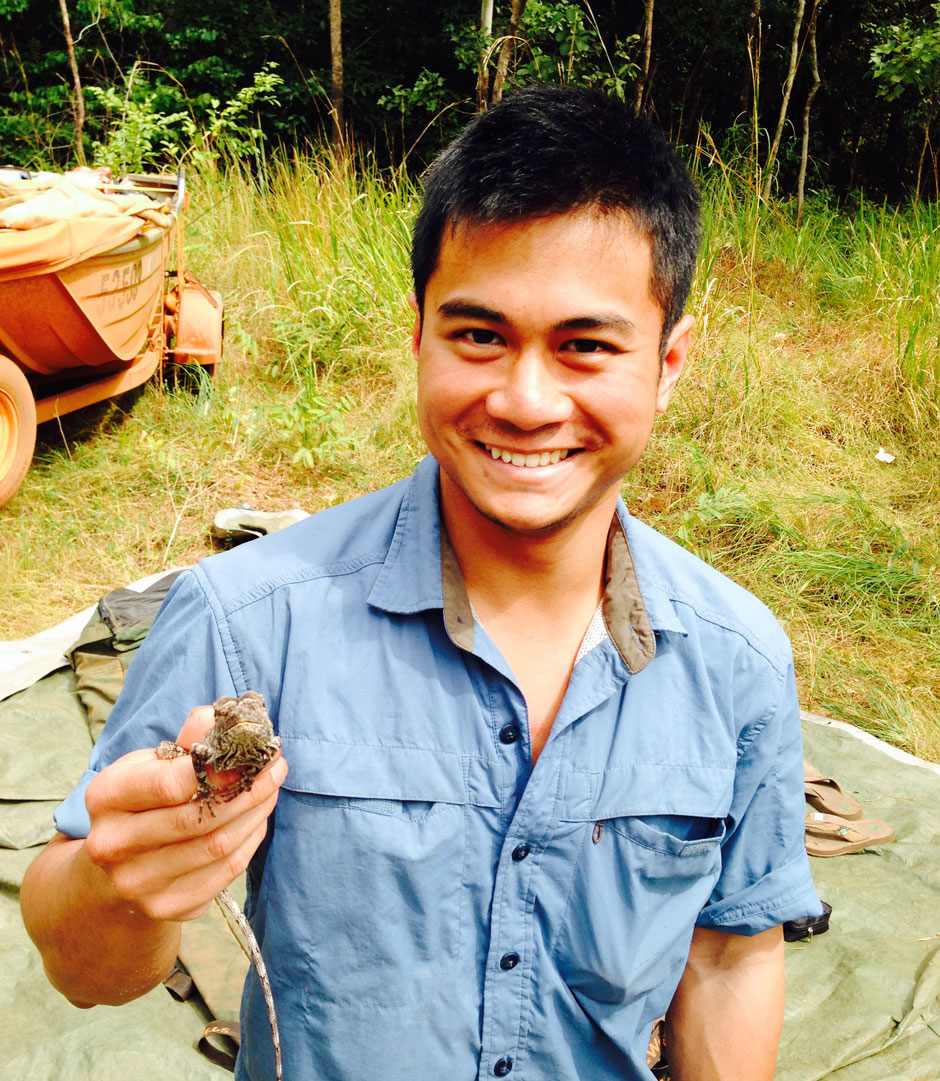 Peñalba in the field holding a frill-necked lizard in northeastern Australia, Cape York Peninsula. |
Peñalba was hired during COVID, so he’s really looking forward to working more closely with his new colleagues after the lockdown is lifted. The tenure-track position comes with a large degree of independence and he’s in the process of starting his own lab group. The Museum für Naturkunde is well known for its state-of-the-art facilities and public exhibits. “I’m really excited to be thinking about some new questions, and pushing the edge on the research I’ve been doing,” Peñalba says. “I also want to dip my toe into science communication and contribute to the public exhibits.”
Over the past three years, he’s gradually adapted to life in Germany. He’s continuing to study the language online four days a week, and he loves the diverse and open culture of Berlin. Moving out of the U.S. activated a ban on his immigration status, meaning that he can’t visit his family in California for ten years since leaving in 2013; but since they’re now legal citizens, they can visit him or meet in other parts of the world. “It was the right choice for me,” he says. “It forced me to broaden my experience and choose the culture and people I want to be surrounded by. It changed my perspective on my future in a really good way.”
Peñalba has a few pointers for current IB undergrads, based on his own unusual path: “Be open, think broadly, and be flexible. Get hands-on experience, not just for your CV, but to really dive into the field. Lots of things will come your way, so try to integrate everything that interests you. And at each stage, find your mentors.”
Learn more about Joshua Peñalba’s work.
Back to Main Spring 2021 Newsletter Page
